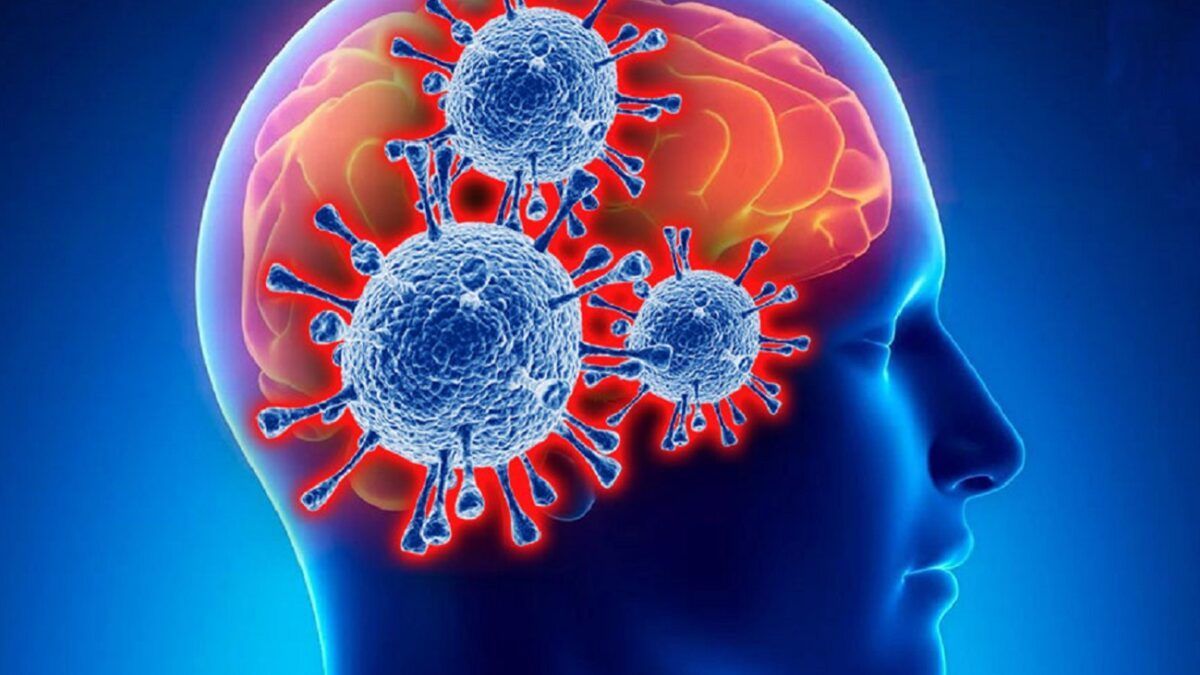After COVID-19 people’s brains are reduced and their mental abilities are diminished
With the arrival of the Omicron strain, the world could breathe easy-although this variant of the virus proved to be the most contagious, it is mild in most people. But it looks like it’s too early to rejoice – the coronavirus is still dangerous with serious consequences.
Millions of people around the world complain of postcovian syndrome. It is accompanied by poor concentration, memory impairment, and a host of other unpleasant symptoms associated with cognitive impairment.
There seem to be several reasons for this. One is physical changes in patients’ brains, including a decrease in gray matter volume. One recent study showed that COVID-19, which occurs even in a mild form, can cause such serious changes.
Patients who have been hospitalized with severe COVID-19 are three times more likely to experience cognitive impairment, something that has been known almost since the pandemic began. But a study published the other day in the journal Nature suggests that anyone who has had COVID-19 can face health problems, regardless of the course of the disease.
The study involved 785 people between the ages of 51 and 81. Volunteers were given magnetic resonance imaging before they got the coronavirus. Subsequently, 401 of these volunteers became infected with SARS-CoV-2. Most of these people had mild symptoms, and only 15 were hospitalized. All of the sick and healthy people had repeat CT scans.
The results of the study showed that four and a half months after mild COVID-19, the patients had thinner gray matter than healthy people. Their brain volume had decreased on average from 0.2 to 2 percent of volume. According to experts, older people lose an average of 0.2 to 0.3 percent of gray matter in substance in the hippocampus over the course of a year. That is, coronavirus survivors have had brain changes similar to, or even more severe than, those of the elderly.
A tomographic study by scientists showed that patients after suffering COVID-19 had 0.7% more tissue damage in the area of the brain responsible for olfaction. Obviously, the loss of sense of smell from COVID-19 has something to do with it. But, this is far from being the most serious symptom.
Scientists have also documented a decrease in mental ability. Patients with COVID-19 score significantly lower on tests of attention, memory and executive function compared to healthy people. Most frustrating of all, however, is that it remains to be seen whether the brain will recover from such damage, and whether patients will recover even after cognitive rehabilitation.
The fact that viral infections can cause long-term cognitive impairment was known before the COVID-19 pandemic. However, there is no consensus on the cause of the effects of viruses, including SARS-CoV-2, on cognitive function. Most likely, the virus has a complex effect. As we found out above, one of the causes is brain damage, but it is not the only one.
Because COVID-19 affects the lungs, it can lead to oxygen deficiency. There have also been documented cases where the coronavirus has caused encephalitis, a form of inflammation of the brain. Plus COVID-19 causes a serious immune response. The citcoin storm increases inflammation throughout the body. And prolonged inflammation is known to cause cognitive decline by itself, as well as cause neurodegenerative disease.
Recently, more and more studies are emerging that suggest that the SARS-CoV-2 virus penetrates directly into the brain. In particular, a U.S. National Institutes of Health study suggests that the coronavirus is capable of spreading far beyond the lungs and respiratory tract. According to this study, prolonged covid, or post-covid syndrome, is related to the inability of the immune system to completely destroy the virus in the body.
Thus, even the end of the pandemic, which is still highly questionable, does not mean the end of all problems associated with the coronavirus.
